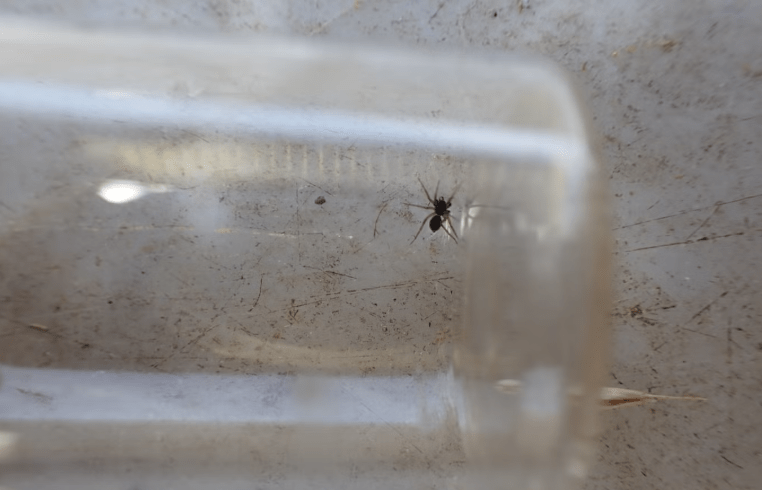A spider species thought to be extinct in the UK has been found alive 40 years after it vanished without a trace.
The Aulonia albimana, a tiny wolf spider with distinctive pale “knuckles” on its mouthparts, has been rediscovered at the National Trust’s Newtown National Nature Reserve. Conservationists have dubbed the reappearance a “major conservation success”.
White-Knuckled’ Spider Spotted in UK After 4 Decades
Last recorded in Britain back in 1985, the elusive spider had long been absent from scientific records, sparking fears that it had silently slipped into extinction.
That is, until entomologists Mark Teller and Graeme Lyons made a last-minute breakthrough during a high-stakes field search.
“This is one of those unforgettable discoveries. To find a species thought lost for 40 years is thrilling and a testament to how the right habitat management, combined with curiosity and collaboration, can deliver remarkable results,” said Mr Teller.
The duo had just four hours to search a remote, overgrown patch of land 2km away from the spider’s previous habitat and only reachable by boat. With the clock ticking, tensions were high.
“I suggested calling it the white-knuckled wolf spider because this was probably the longest long shot I’ve ever taken part in,” said Mr Lyons.
“We had just four hours at the site where this spider was last seen 40 years ago, before our boat came to pick us up. I found the first one with just nine minutes to go, and the second one in the last minute. I’ve seen 559 species of spider in the British Isles, and this one was by far the most exciting find.”
A Unique Hunter Returns
The white-knuckled wolf spider belongs to a group known for their agile hunting skills. Unlike most spiders that rely on webs, wolf spiders stalk and pounce on their prey. Though they may spin a “flimsy web,” it’s their quick-footed chase that gives them their name.
The Isle of Wight discovery has reignited hope for the species’ survival. Found in a quiet, undisturbed area accessible only by boat, its remote refuge may have shielded it from the habitat loss that claimed its previous colony.
One of Britain’s Most Spectacular Rediscoveries
Dr Helen Smith of the British Arachnological Society put the rediscovery in perspective: “The remarkable discovery of this dapper little spider on the Isle of Wight is one of Britain’s epic ‘lost species’ rediscoveries of the century.
With repeated failure to find it at its former sites, where its open habitat has been lost, it seemed increasingly likely that it had joined the country’s sad list of extinct species.”
Conservation Victory But Work Continues
Experts say the rediscovery underscores the importance of preserving neglected or less-accessible habitats. The National Trust credits habitat restoration at Newtown for playing a crucial role in the spider’s survival.
This surprise comeback serves as a sharp reminder: even species we believe lost can cling on in the most unexpected places.
Fun fact: Wolf spiders don’t spin webs to catch prey; they use speed, stealth, and superb eyesight to take down their targets on foot.






